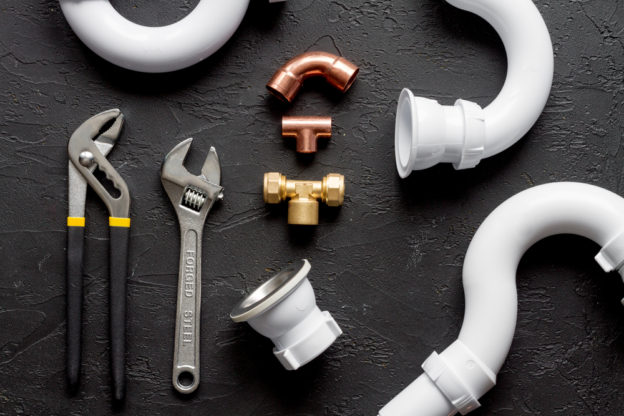A leaky pipe is causing water damage to your apartment. You can’t flush your toilet. You have no hot water, making it difficult to bathe during the cold New York City winter.
One of the reasons why people choose apartments over houses is because of the convenience. The landlord is the one who takes care of maintenance issues such as leaks, appliance issues, and cracks in the foundation. The tenant simply has to inform the landlord of the problem and he or she should promptly fix it.
When it comes to tenants’ rights and plumbing problems, it’s important that both tenants and landlords understand the law. When landlord negligence causes water damage, what do you do? If you notice a water leak in your apartment, who is responsible?
Look at the Lease
Before signing the lease and moving in, it’s important that you actually read in. Not all leases are created equally. You need to be aware of your responsibilities as a tenant, so you know what you will and will not have the pay for should an issue occur.
While landlords have a duty to provide a bulk of the maintenance, there are things you will be required to do as a tenant. For example, you must keep your unit clean and take out the trash regularly to prevent rodent problems. You must also leave the property in the same condition it was in when you moved in. This means clean carpets and no wall damage or broken windows.
What the Law Says
Under New York law, you have the right to live in a habitable home. This means you are given necessities such as electricity, plumbing (including hot water), ventilation systems and working smoke detectors. If you notice a maintenance issue, your landlord must take the appropriate steps to fix it right away. When it’s not fixed in a timely manner, it creates a safety hazard. If this safety hazard causes injury, you may be able to take legal action.
When There’s a Maintenance Issue
Plumbing is a necessity, and landlords must keep the sinks, tubs and toilets in working order at all times. When a tenant is having issues using any of these facilities, the landlord commonly needs to step in and fix the issues.
Furthermore, injuries resulting from leaking water or other fluids from plumbing, HVAC fixtures, ceiling or roof damage, are some of the most common slip and fall cases. If the landlord was aware of the plumbing issue and a tenant slipped and fell because of the extenuating circumstance, a tenant could seek compensation for their injury. Having posted a “wet floor” sign does not automatically counter other negligence that exists.
In order to prove negligence, communication and details are key. You must let your landlord know as soon as you discover a problem. If you wait months before discussing the issue, and it gets worse, you could be on the hook for repairs, since you didn’t communicate in a timely manner.
Take notes of the date you discovered the problem, the date you informed the landlord and when the problem was fixed. You may need to contact the landlord multiple times before the problem is resolved. If you do, keep notes of the contact dates.
If the unit or your property becomes water damaged, your landlord’s insurance should cover it. However, if water damage occurs and it’s nobody’s fault, the landlord may refuse to cover anything that is ruined. Therefore, it’s a good idea to have renter’s insurance, which will likely cover such situations.
Get Legal Help from a Brooklyn Landlord Negligence Attorney
As a tenant, you have certain rights. You have the right to live in a habitable apartment with adequate plumbing. If a landlord’s negligence has caused your rental unit to suffer plumbing issues or water damage, you should consider exercising your legal rights. Additionally, if you are injured as a result of these plumbing issues you could seek compensation for your injuries as a result.
The Law Office of Jeffrey K. Kestenbaum can help you understand the legal options available to you. He can uncover the evidence needed to help you file a claim for compensation. To learn more, call our Brooklyn office at (718) 237-5586 to schedule a consultation.







